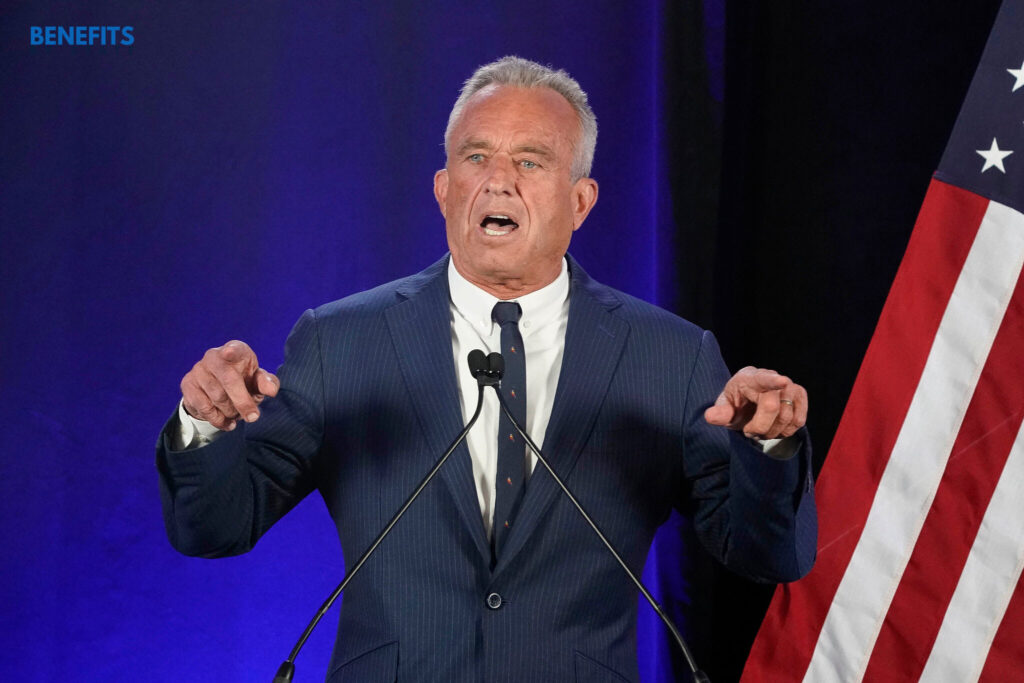
In a heated Senate hearing at Capitol Hill, Robert F. Kennedy, famous for his provocative stances on individual rights and public health issues, received tough questions regarding vaccine availability and abortion. As a result exposing the glaring fractures outlining the country’s healthcare, reproductive rights, public safety, etc. Moreover, Kennedy and lawmakers exchanged intense opinions, with strong opinions also coming from him.
RFK Jr. stood firmly on his right to free speech and stressed parental rights and reasonable abortion limits. The hearing brought to light the growing political and ideological divide in the US. Indeed, Kennedy’s positions continue to be a matter of discussion as Americans are still rising above critical healthcare.
Vaccines and Public Health Position Under Focus
Senators pressed Kennedy about his past comments on vaccines and their safety. As a result, he has become a contentious figure in framing general health policy in America. RFK Jr. vaccine stance attempts to clarify his take on the issue. Also, he strongly maintains that “informed consent” is paramount, closely followed by parental rights. He explains, “It’s not that I am anti-vaccine. I can support safe vaccines, but we have to be able to speak the truth about the risks and benefits regarding them.”
Part of the Opposition
Senator Maria Johnson (D-MA) did not budge from the stance that vaccines are crucial in eradicating diseases such as measles and polio. “Your statements have increased the risk of astonishing misguidance that is detrimental to public health,” Johnson remarked. “Are you not held accountable for your statements?”
RFK Jr. articulated himself very well on the stance of freedom of speech, “Allowing public discussion is important for a functioning democracy. Wiping away opposition leads to erosion of trust not better outcomes.”
Read Also: CDC Confirms First Severe Bird Flu Case in the U.S.
Views On Abortion Lead to More Disagreements
The hearing also examined Kennedy’s position regarding abortion, an issue that continues to polarize US politics. From the particular group of Democrats, Kennedy had to contend with some very aggressive questioning by pro-choice members of Congress.
“I believe in the sanctity of life, but I also understand that this is a deeply personal issue for women and families,” explained Kennedy. “Reasonable restrictions” are understood to mean that a complete abortion ban is not Kennedy’s preference.
“I don’t see this as a compromise position,” RFK Jr. stated. “They can be done without further interfering with the lives of women.”
Senator Lisa Martinez (D-CA) responded to him, saying, “You advocate for women’s reproductive health freedom, and that is of utmost importance. Hence, you could create even greater restrictions that would prove catastrophic.”
Kennedy’s compromise position was partisan to, “a compassionate and balanced approach that respects women’s rights and the sanctity of life.”
Senators Call for Full Disclosure and Answerability
The Senate confirmation hearing ended with the participants arguing that Kennedy needed to be more articulate about his viewpoints, and how they relate to the public’s health and birth control rights. Some lawmakers pointed out that there should be a sense of responsible leadership amidst rampant misinformation and health catastrophes.
“We need leaders who are logical, steadfast, and evidence-based,” said Senator Wells Richard.
Public Feedback Along with Political Consequences
There was great public interest in the Senate hearing as a large number of Americans kept an eye on the proceedings. Supporters of RFK Jr. commended him for being principled in championing personal liberties. Whereas opponents claimed that Kennedy inflamed an already damaging narrative that most people have absorbed.
RFK Jr. Abortion Views
As voters head to the poll, the debate within the American electorate surrounds Kennedy’s politics. Especially about his stance on abortion and vaccine supply. This hearing’s outcome may impact the political direction Kennedy embarks on. As well as contribute to a new phase in the discussion on public health and reproductive rights in the U.S. Visit BenefitsbyState.com for more insights.

